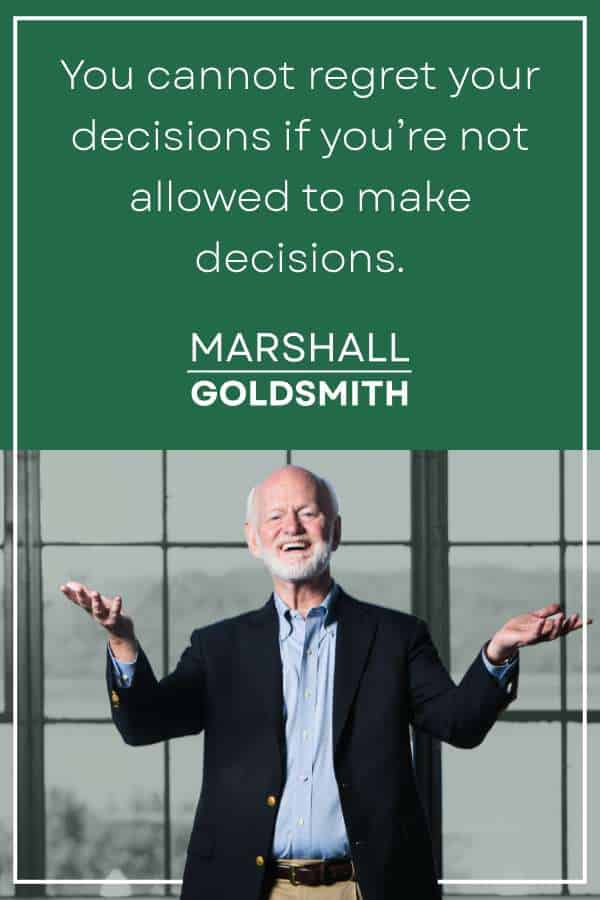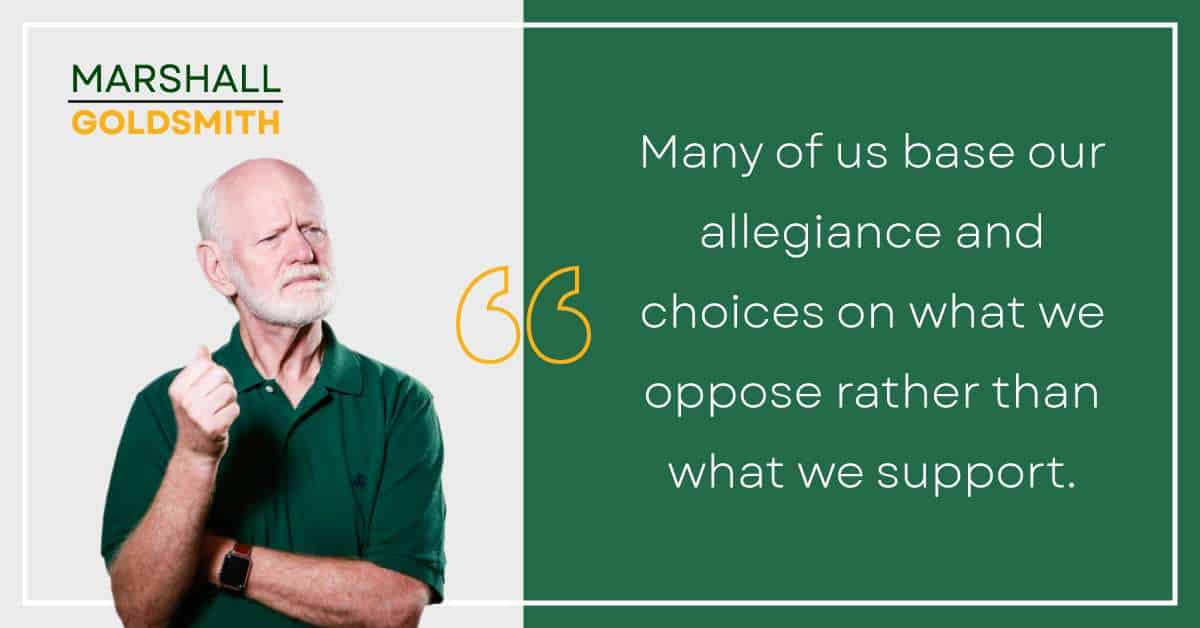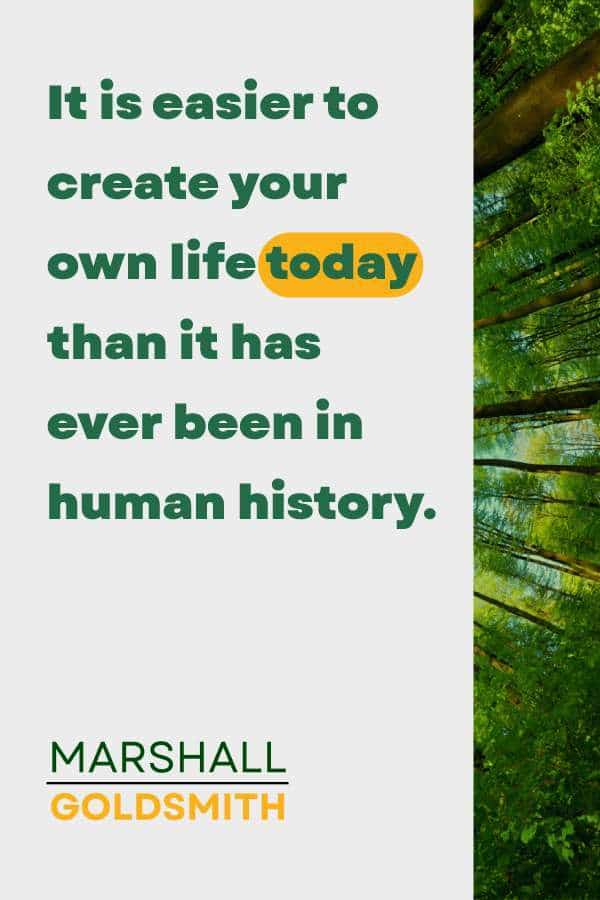Playing Favorites By Marshall Goldsmith There’s a reason I devote...
People are always being categorized — they’re parts of groups rather than individuals. And how do we respond?
Back in 1907, the philosopher/psychologist William James wrote, “What shall we call a thing anyhow? It seems quite arbitrary, for we carve out everything, just as we carve out constellations, to suit our human purposes. For me, this whole ‘audience’ is one thing, which grows now restless, now attentive. I have no use at present for its individual units, so I don’t consider them. So of an ‘army,’ of a ‘nation.’ But in your own eyes, ladies and gentlemen, to call you ‘audience’ is an accidental way of taking you. The permanently real things for you are your individual persons.”
So — what shall we call a thing, anyway? Our peer group? Our age group? Our religious group? There’s something else: the people we work with, the individuals who influence us at close hand.
My friend, the late Dr. Roosevelt Thomas, Jr., a Harvard PhD in Organizational Behavior, reshaped corporate America’s attitudes about workplace diversity and had a crucial insight on the unappreciated influence of referent groups in everyday life.

Early in my career, we co-wrote a paper on the subject, although only he went on to make it part of his life’s work. Roosevelt Thomas contended that each of us feels emotionally and intellectually connected to a specific cohort of the population. We think of this concept as “tribalism” today, but in the early 1970s, the idea of referent groups to explain social upheaval and the differences among people was a breakthrough concept.
A referent group could be vast, like the community of a specific religion or political party, or it could be as small as, say, the people who love the band Phish (aka Phish-heads). It would be impossible to catalog all the referent groups in the United States. They are more numerous than Twitter hashtags, and they procreate like rabbits.
Roosevelt Thomas’s point was that if you know a person’s referent group—to whom or what they feel deeply connected, whom they want to impress, whose respect they crave—you can understand why they talk and think and behave the way they do.
The corollary here is that most of us also have a counter-referent group. We base our allegiance and choices on what we oppose rather than what we support, whether it’s Democrat vs. Republican or Real Madrid vs. Barcelona. What we abhor shapes us almost as much as what we love.
You don’t have to agree with people in other referent groups, but if you appreciate the influence exerted by such group, you are less likely to be stupefied by their adherents’ choices or dismiss them as “idiots.” By the way, my referent group is teachers. My mother was a teacher, and she was my biggest influence growing up. Thus, I identify with teachers. I judge myself on my ability to impart what I know to help others. The respect I value most comes from teachers. That said, this personal fact is hidden, rarely revealed, or openly discussed. Even lifelong friends might not know this about me unless I told them. That’s how mysterious a person’s referent group can be. You have to probe hard to figure it out. Your reward, though, is an eye-opening recalibration and understanding of someone you only thought you knew.
I saw how Roosevelt Thomas’s theory applied to Mark, the Goldman Sachs employee who had, at first, been reluctant to leave his job for The Nature Conservancy because he feared what his colleagues would say.
I had the false impression that Mark’s referent group comprised socially concerned people who were vegan, practiced yoga, and cared about the environment—just like him. The truth was that after twenty-four years, Mark was still emotionally linked to his aggressive, bespoke-suit-wear- ing, deal-making colleagues at Goldman Sachs. Their approval still mattered to him.
Expecting Mark to instantly abandon this referent group was a big ask, akin to demanding that he deny his identity. It was so powerful that he was willing to sacrifice the gift that fell into his lap with the search firm’s initial call, namely, the opportunity to re-create his own life.
Mark’s call triggered an insight. Although I was gratified that my exhortation to “start living your own life” proved to be a persuasive phrase for him, the teacher in me wondered: If someone as driven and accustomed to success as Mark could be thwarted by his referent group, how many other people, many with fewer resources and opportunities, were being equally blocked for wholly different reasons?
What were the forces stopping them from creating their own lives?
And what could I do to help?
The good news is that it is easier to create your own life today than it has ever been in human history. In the past, almost all of us were second-class citizens from birth. We could not vote and choose our leaders. Conformity was the rule and any difference was punished, whether that difference was whom we loved or which deity we worshiped (if, in fact, we worshiped any deity).
We may have had more sorrow, but we had less regret. You cannot regret your decisions if you’re not allowed to make decisions.
The trend line of the last hundred years suggests that we will continue acquiring more rights and more freedoms. In much of the world, we are no longer serfs, women can vote, hundreds of millions of people are rising out of poverty, and it’s okay to be gay.
In other words, many of us have reason to be optimistic. The icing on this layer cake of optimism is technology: In expanding our mobility and access to information, technology has multiplied the number of choices beckoning us — more freedom, more movement, more options in work and play.
That’s a problem—and I’m hardly the only one making this big claim.

Adding Too Much Value Won’t Get You There By Marshall...
C-Suite Master Class: No, But, However By Marshall Goldsmith Continuing...
The Doerr Institute: Expanding the Market for Coaches By Marshall...
Making Leadership Development Part of the College Degree at Rice...
Sanyin Siang – Winner of the Thinkers50 Marshall Goldsmith Coaching...
Thinkers50 Marshall Goldsmith Distinguished Achievement Award in Coaching – Nominees...
Leading with Influence: What Is Influence360°? By Marshall Goldsmith Founder...
Are You a Dominator, Manipulator, Persuader or Influencer? By Marshall...
Leading with Influence: Redefining Modern Influence Part 2 By Marshall...

My mission is simple. I want to help successful people achieve positive, lasting change and behavior; for themselves, their people, and their teams. I want to help you make your life a little better. With four decades of experience helping top CEOs and executives overcome limiting beliefs and behaviors to achieve greater success, I don’t do this for fame and accolades. I do this because I love helping people!
As an executive educator and coach, I help people understand how our beliefs and the environments we operate in can trigger negative behaviors. Through simple and practical advice, I help people achieve and sustain positive behavioral change.